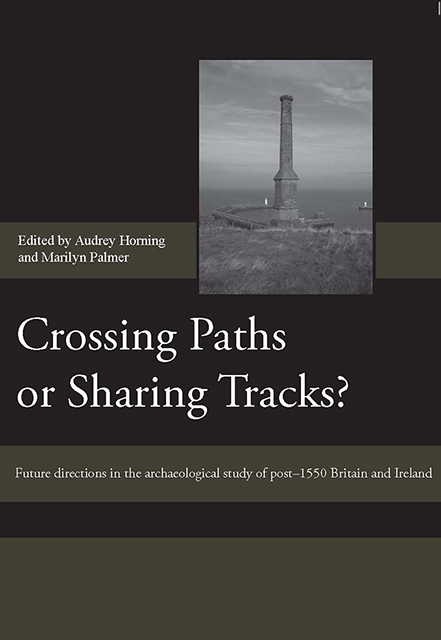 Crossing Paths or Sharing Tracks?
Crossing Paths or Sharing Tracks? An Amorphous Farrago? The Contribution of Industrial Archaeology
Published online by Cambridge University Press: 07 March 2023
Summary
This discussion is off ered as a contribution to the debate within industrial archaeology specifically as to the appropriate focus of the discipline. There has been much discussion in recent years as to the rival claims of an archaeology that emphasises the social context of industrialisation on the one hand, and the importance of the direct study of engineering technology on the other. It will be argued here that there is no necessary and inevitable conflict between these approaches, that common ground is possible and that they can inform each other to their mutual benefit and to the benefit of archaeological study of the period from 1550 onwards.
INTRODUCTION
This volume, as the proceedings of a conference arranged jointly by the Association for Industrial Archaeology, the Society for Post-Medieval Archaeology and the Irish Post- Medieval Archaeology Group, is, as might be anticipated, theoretically diverse. But then, an archaeological conference that took as its period the years 1550 to the present day, and that took as its locale the restless lands of England, Ireland, Scotland and Wales, set itself an ambitious task. It was made even more so by encompassing not only academic or intellectual understanding of the dynamics of this period but also the questions of management and interpretation. A readiness to consider diff erent approaches is a precondition of coming to terms withso broad a scope. Our 16th-century starting-point was a period of profound paradigmatic change, which experienced radically altered ways of thought, altered political and tenurial relationships, and, perhaps above all else, the European recognition of the human ‘other’ in the populations of the New World. The period as a whole witnessed the Enlightenment, and – eventually – growing plebeian and female participation in the political process. It witnessed shifts, sometimes violent, in the power-relationship between centre and periphery, bothwithin the constituent communities of the Atlantic isles and in their relationship withthe rest of the world. Many of us consider that its defining experience was the scientific and industrial revolution. So much of the built and landscape fabric withwhich we are familiar was bequeathed to us in the last five hundred years or so. We are contemplating a vast subject, one that has generated no shortage of approaches.
- Type
- Chapter
- Information
- Crossing Paths or Sharing Tracks?Future directions in the Archaeological Study of Post-1550 Britain and Ireland, pp. 19 - 30Publisher: Boydell & BrewerPrint publication year: 2009
- 2
- Cited by


